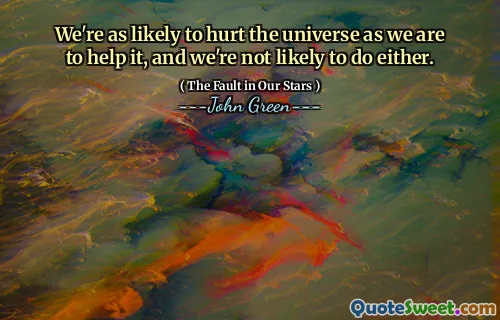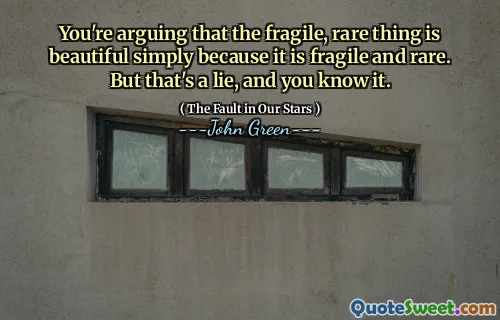
You're arguing that the fragile, rare thing is beautiful simply because it is fragile and rare. But that's a lie, and you know it.
The quote challenges a commonly held perception that rarity and fragility automatically confer beauty or value. It invites us to question the genuineness of our admiration and the motivations behind it. At first glance, it might seem romantic or poetic to hold something precious solely because it is delicate and uncommon, but this quote pushes us to recognize that such reasoning can be deceptively shallow. It suggests that our inclination to elevate fragility and rarity isn't an absolute truth, but rather a comforting narrative we tell ourselves.
This idea resonates on multiple levels, especially in how we view not only objects but relationships, experiences, and even emotions. In a world where rarity is often equated with worth, this quote encourages critical thinking about whether something truly deserves admiration or value, beyond its scarcity. It implies that beauty should be grounded in more substantial qualities rather than superficial attributes.
Furthermore, the quote's assertive tone – "But that's a lie, and you know it" – puts responsibility on the listener or reader, urging self-awareness and honesty. It cuts through romantic illusions to expose an uncomfortable truth: the reasons we treasure something may not be as pure or rational as we like to believe. This layer of introspection can lead to growth, forcing us to broaden our criteria for appreciation so that it’s rooted in genuine understanding rather than cultural clichés or fragile ideals.
In sum, the quote probes the complexity behind the aesthetics of value and challenges us to critically evaluate what we hold beautiful and why, ultimately urging authenticity in our perceptions.







